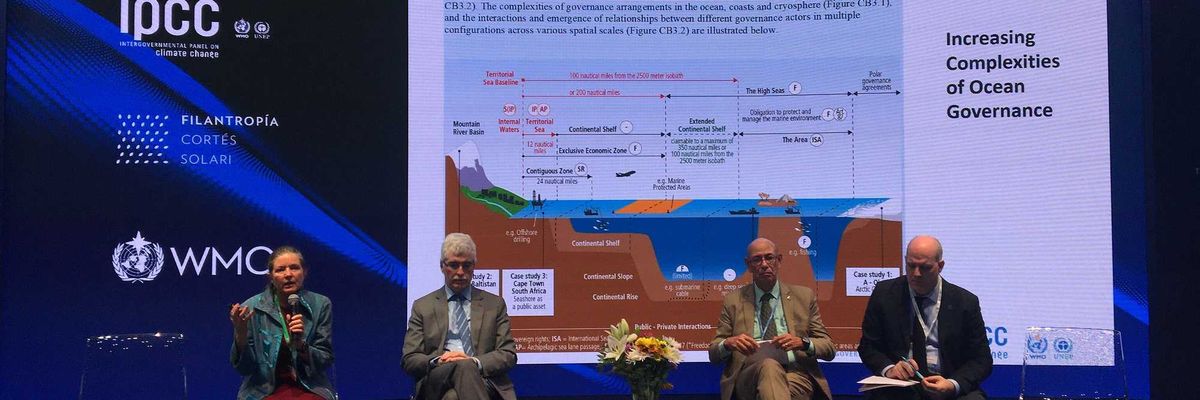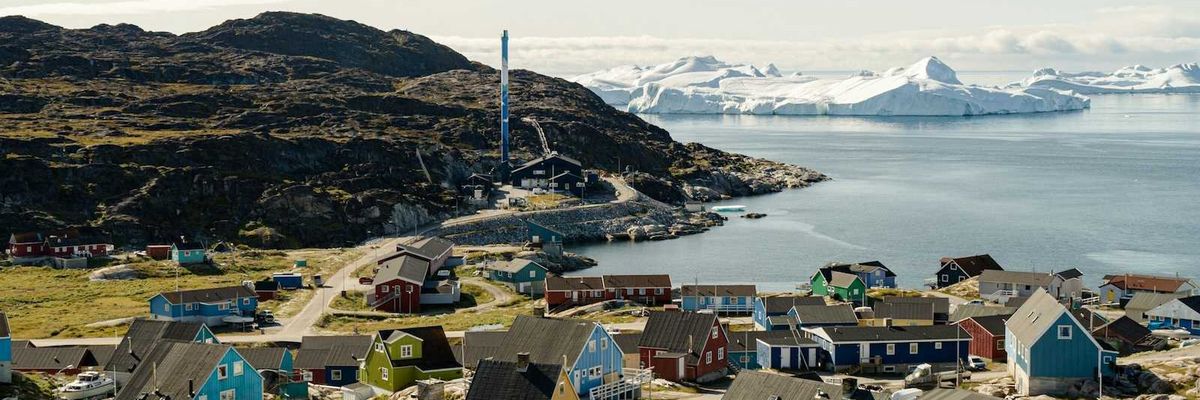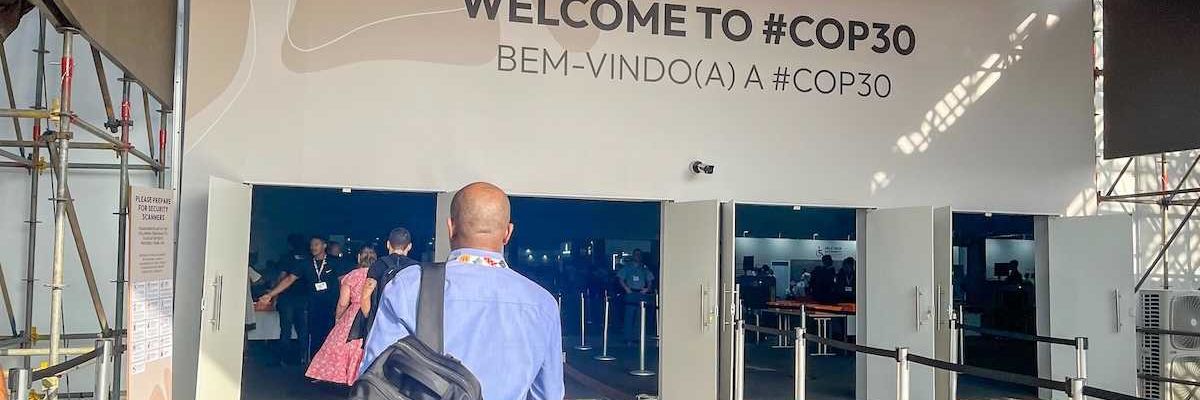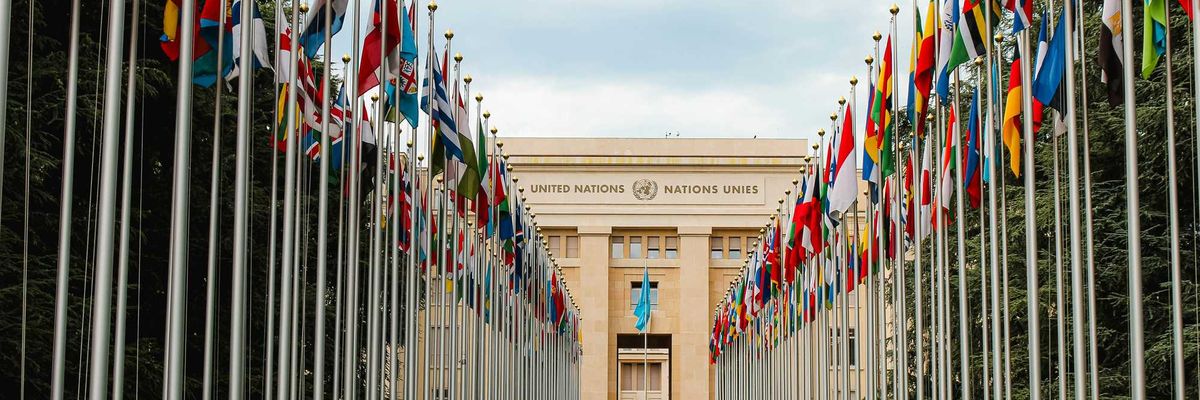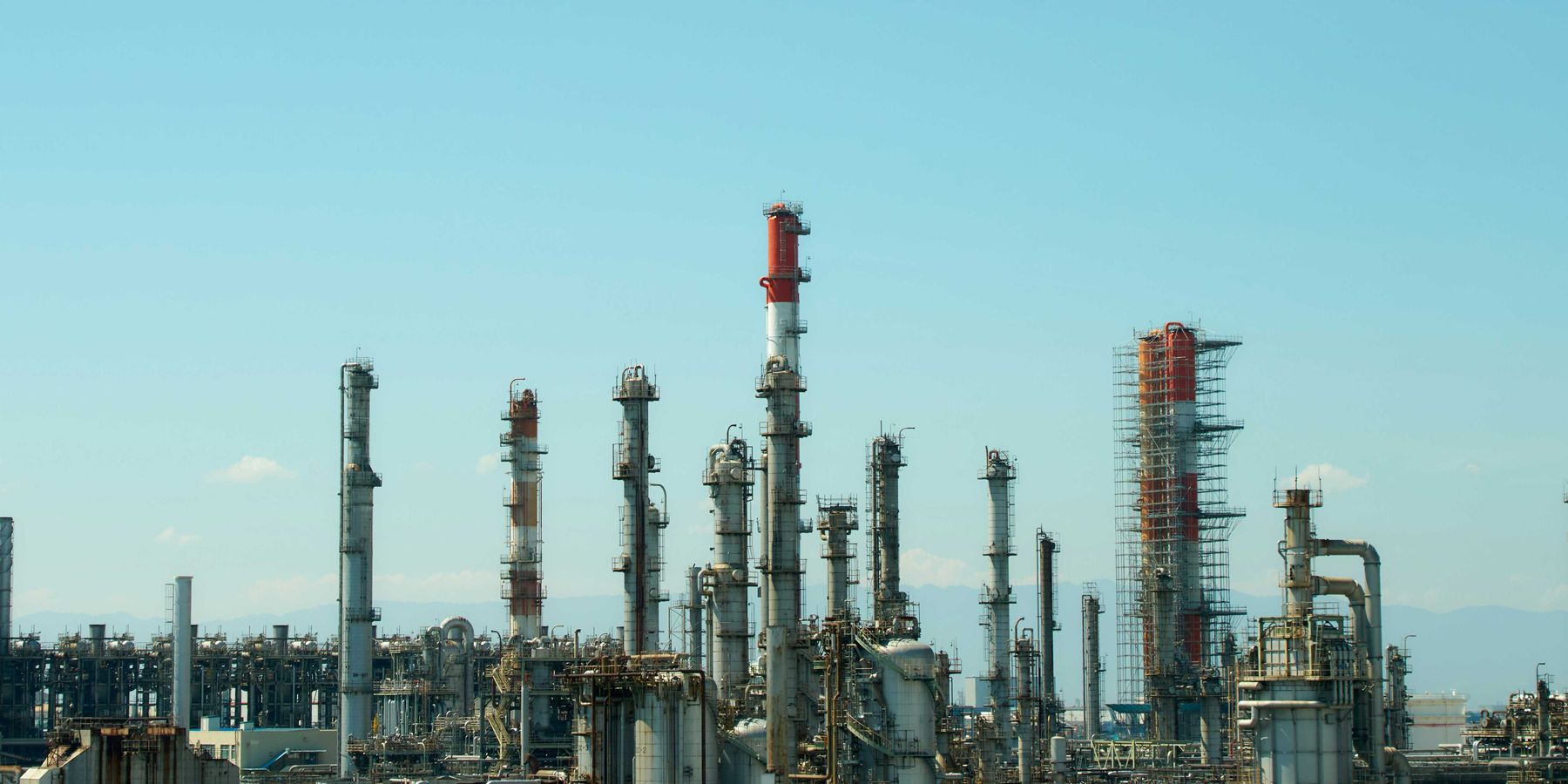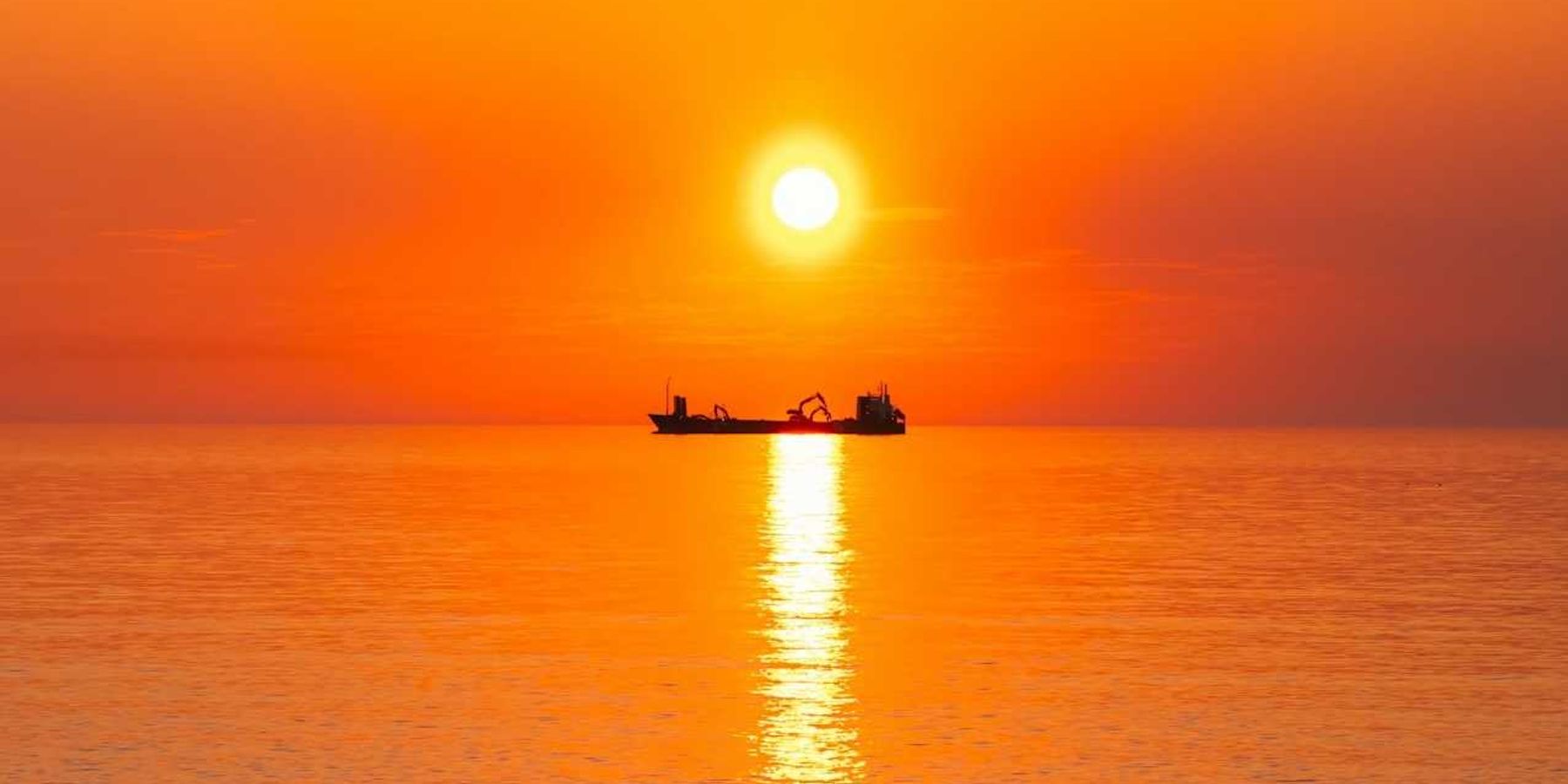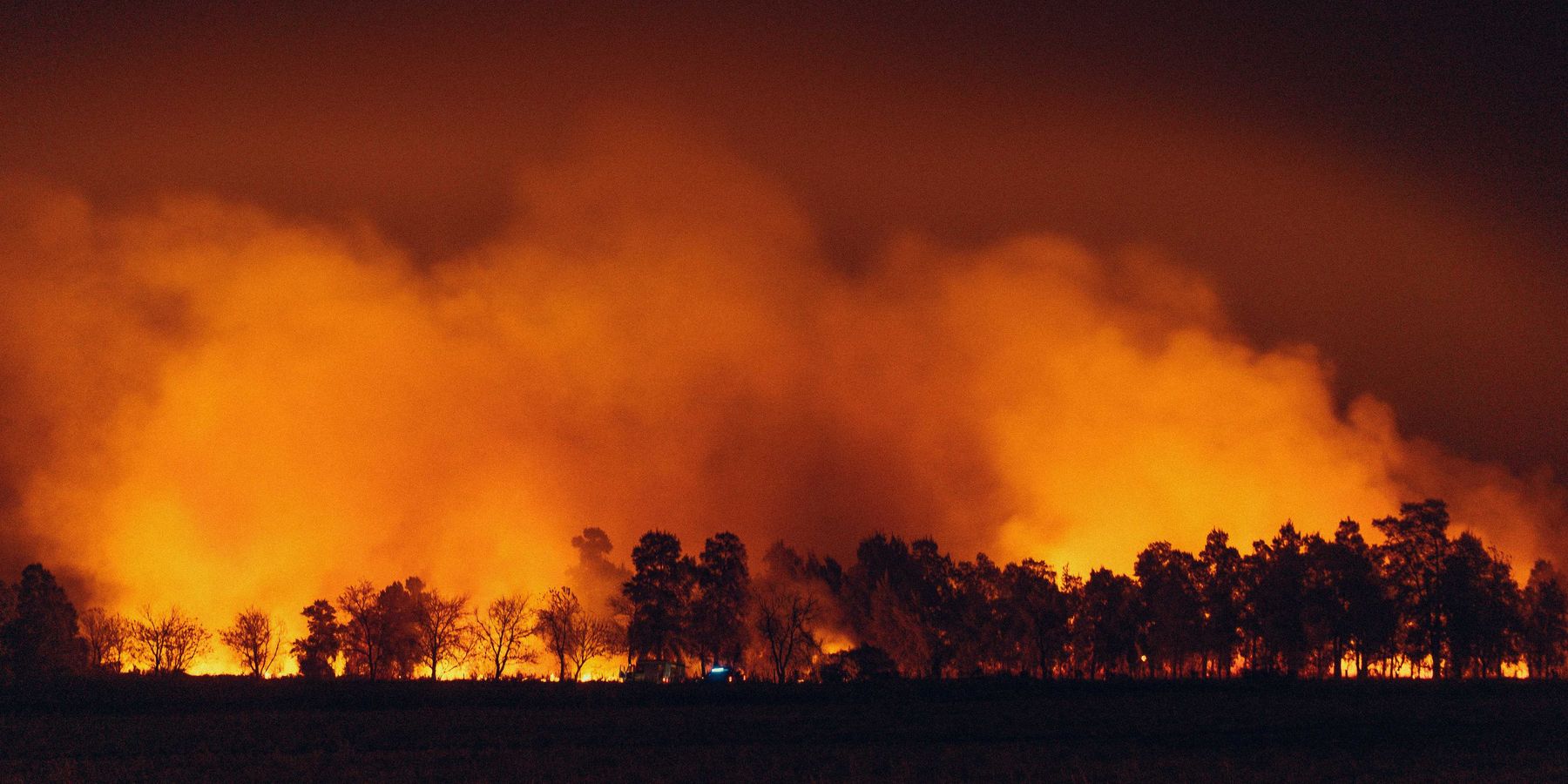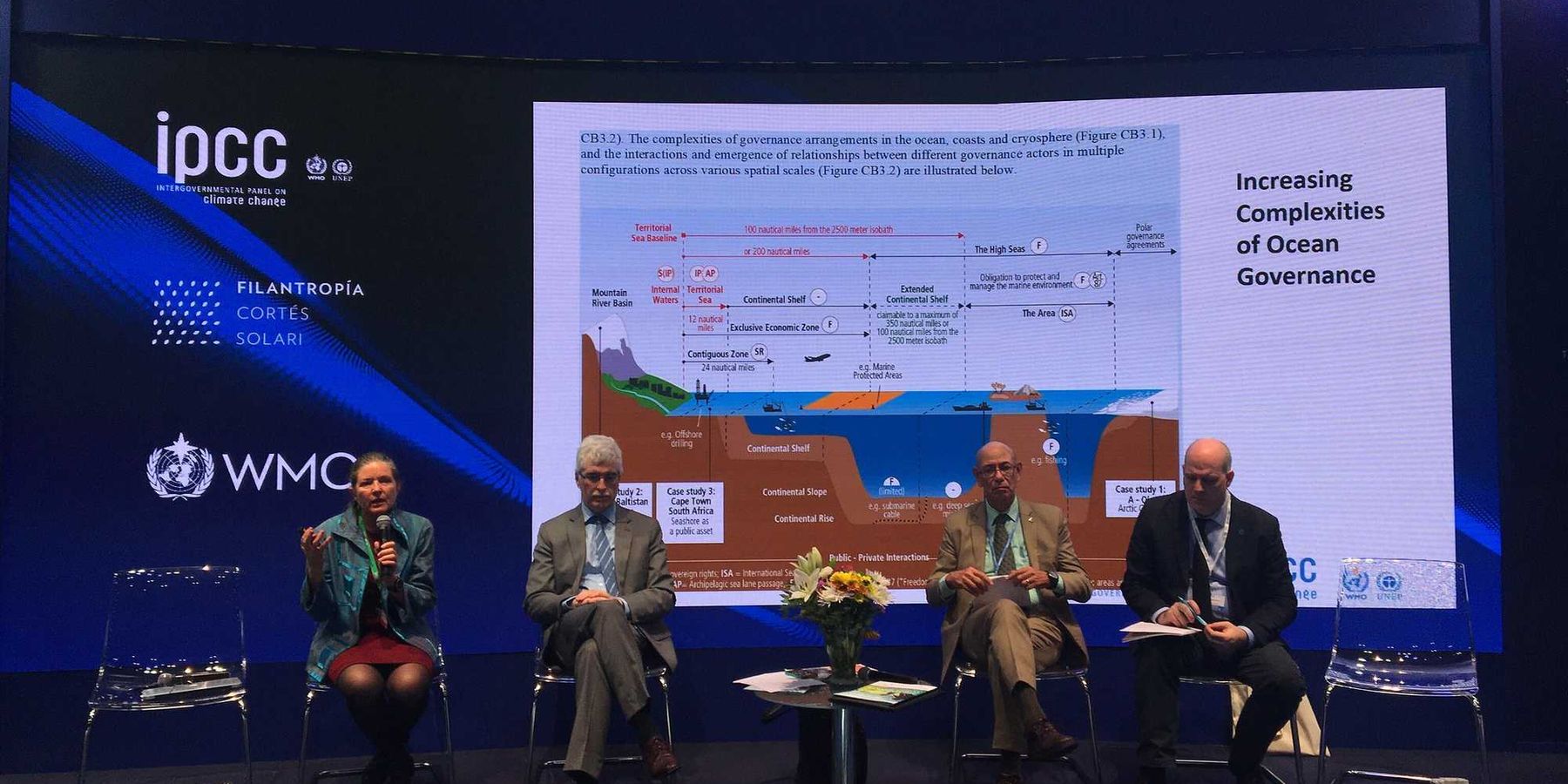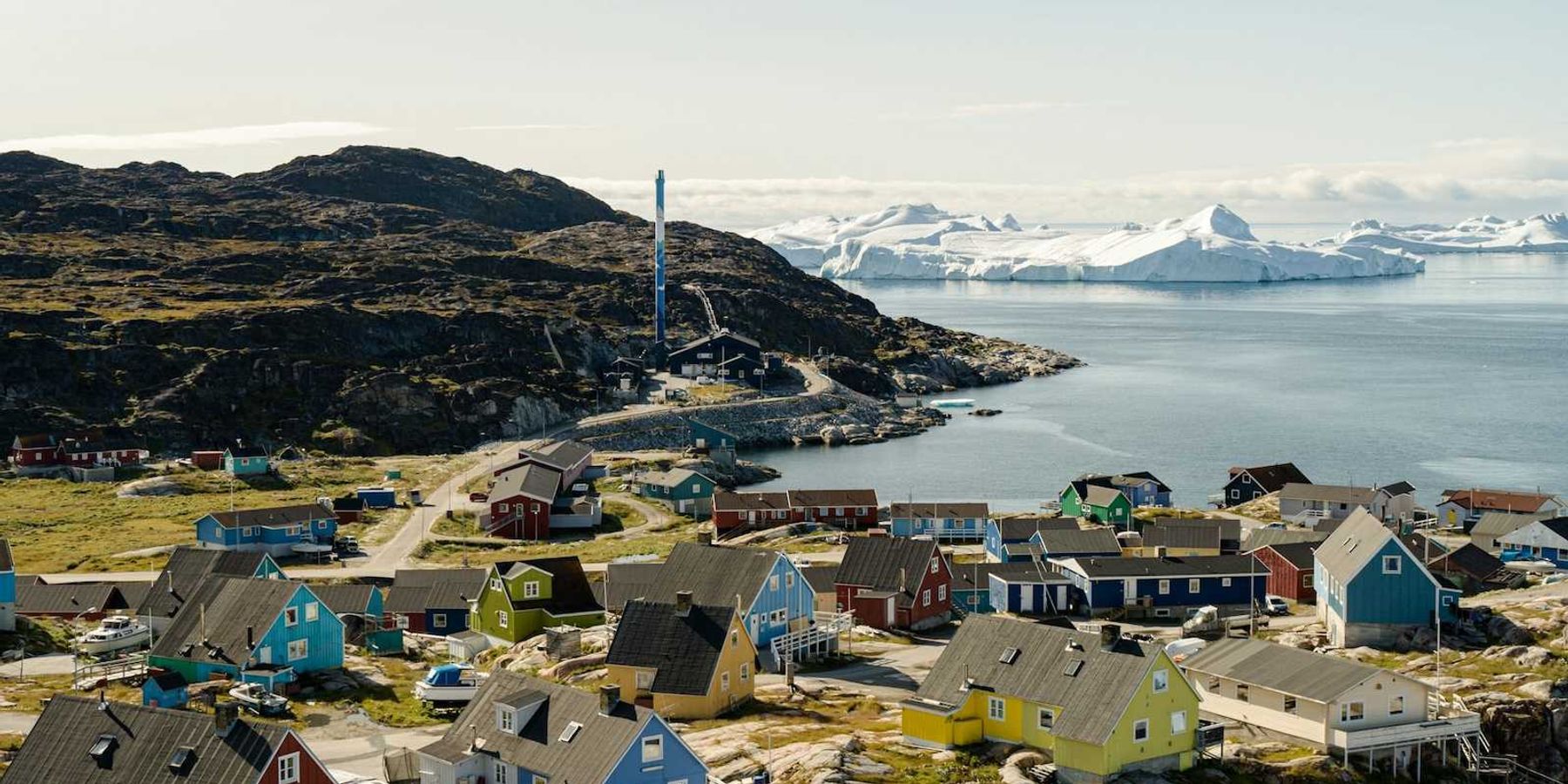ourplanet
How the 1% are preparing for the apocalypse.
The threat of global annihilation may feel as present as it did during the Cold War, but today's high-security shelters could not be more different from their 20th-century counterparts.
Say "doomsday bunker" and most people would imagine a concrete room filled with cots and canned goods.
The threat of global annihilation may feel as present as it did during the Cold War, but today's high-security shelters could not be more different from their 20th-century counterparts.
Content by Rado
Rado True Designers' Series
A number of companies around the world are meeting a growing demand for structures that protect from any risk, whether it's a global pandemic, an asteroid, or World War III -- while also delivering luxurious amenities.
"Your father or grandfather's bunker was not very comfortable," says Robert Vicino, a real estate entrepreneur and CEO of Vivos, a company he founded that builds and manages high-end shelters around the world.
"They were gray. They were metal, like a ship or something military. And the truth is mankind cannot survive long-term in such a Spartan, bleak environment."
the oppidum 3
The Oppidum, Czech Republic
The Oppidum, Czech Republic
the oppidum 2
Vivos Europa One, Germany
vivos x point 2
vivos x point inside door
vivos x point 3
Vivos XPoint, South Dakota
Survival Condo, Kansas
survival condo pool pic
safe house 1
safe house 3
safe house 2
The Genesis
The Aristocrat
doomsday bunker 1
Trident Lakes, Texas
silohome
the californian house
flood house 2
flood house 1
1/22 – The Oppidum, Czech Republic
The demand for designer bunkers has grown rapidly in recent years. Credit: the oppidum
Doomsday demand
Many of the world's elite, including hedge fund managers, sports stars and tech executives (Bill Gates is rumored to have bunkers at all his properties) have chosen to design their own secret shelters to house their families and staff.
Gary Lynch, general manager of Texas-based Rising S Company, says 2016 sales for their custom high-end underground bunkers grew 700% compared to 2015, while overall sales have grown 300% since the November US presidential election alone.
Related:
Apocalypse now: Our incessant desire to picture the end of the world
The company's plate steel bunkers, which are designed to last for generations, can hold a minimum of one year's worth of food per resident and withstand earthquakes.
But while some want to bunker down alone, others prefer to ride out the apocalypse in a community setting that offers an experience a bit closer to the real world.
chislehurst 3
kemnal bunker walls
chislehurst 2
chislehurst
survival condo exterior
atlas bunker bunks
survival condo generator
survival condo original
germanys wartime bunkers residential housing bremen
germanys wartime bunkers wohnen im bunker
germanys wartime bunkers vivos europa one
Hoglmaier appartment
Apartment_Hoeglmaier_1
Apartment_Hoeglmaier_11
munich bunker befoer
beijing underground 2
beijing underground 3
1/17 – Five-star shelter
A secret bunker in South-East London, built to protect key government employees during a nuclear winter, has been transformed into a $4 million luxury residence. Credit: JDM estate agents
Developers of community shelters like these often acquire decommissioned military bunkers and missile silos built by the United States or Soviet governments -- sites that would cost hundreds of millions of dollars to build today.
The fortified structures are designed to withstand a nuclear strike and come equipped with power systems, water purification systems, blast valves, and Nuclear-Biological-Chemical (NBC) air filtration.
Most include food supplies for a year or more, and many have hydroponic gardens to supplement the rations. The developers also work to create well-rounded communities with a range of skills necessary for long-term survival, from doctors to teachers.
Vicino says Vivos received a flurry of interest in its shelters around the 2016 election from both liberals and conservatives, and completely sold out of spaces in its community shelters in the past few weeks.
Designer ark
One of those shelters, Vivos xPoint, is near the Black Hills of South Dakota, and consists of 575 military bunkers that served as an Army Munitions Depot until 1967.
Presently being converted into a facility that will accommodate about 5,000 people, the interiors of each bunker are outfitted by the owners at a cost of between $25,000 to $200,000 each. The price depends on whether they want a minimalist space or a home with high-end finishes.
The compound itself will be equipped with all the comforts of a small town, including a community theater, classrooms, hydroponic gardens, a medical clinic, a spa and a gym.
Vivos Europa One in Germany
Vivos Europa One in Germany Credit: © Copyright Terravivos.com
For clients looking for something further afield and more luxurious, the company also offers Vivos Europa One, billed as a "modern day Noah's Ark" in a former Cold War-era munitions storage facility in Germany.
The structure, which was carved out of solid bedrock, offers 34 private residences, each starting at 2,500 square feet, with the option to add a second story for a total of 5,000 square feet.
Stunning mural appears in secret forest
The units will be delivered empty and each owner will have the space renovated to suit their own tastes and needs, choosing from options that include screening rooms, private pools and gyms.
Vicino compares the individual spaces to underground yachts, and even recommends that owners commission the same builders and designers that worked on their actual vessels.
"Most of these people have high-end yachts, so they already have the relationship and they know the taste, fit, and finish that they want," he explains.
The vast complex includes a tram system to transport residents throughout the shelter, where they can visit its restaurants, theater, coffee shops, pool and game areas.
"We have all the comforts of home, but also the comforts that you expect when you leave your home," Vicino adds.
Survival Condo in Kansas
Survival Condo in Kansas Credit: Courtesy of Survival Condo
Nuclear hardened homes
Developer Larry Hall's Survival Condo in Kansas utilizes two abandoned Atlas missile silos built by the US Army Corps of Engineers to house warheads during the early 1960s.
Super-rich building luxury doomsday bunkers
"Our clients are sold on the unique advantage of having a luxury second home that also happens to be a nuclear hardened bunker," says Hall, who is already starting work on a second Survival Condo in another silo on site.
"This aspect allows our clients to invest in an appreciating asset as opposed to an expense."
The Survival Condo has several different layouts, from a 900-square-foot half-floor residence to a two-level, 3,600-square-foot penthouse that starts at $4.5 million.
Owners have access to their homes and the facilities at anytime, whether a disaster is imminent or they just want to get away from it all, and the complex features a pool, general store, theater, bar and library.
The condo association sets the rules for the community, and during an emergency, owners would be required to work four hours a day.
Long-term luxury
If you prefer to spend the end of days solo, or at least with hand-selected family and friends, you may prefer to consider The Oppidum in the Czech Republic, which is being billed as "the largest billionaire bunker in the world."
The top-secret facility, once a joint project between the former Soviet Union and Czechoslovakia (now the Czech Republic and Slovakia), was built over 10 years beginning in 1984.
An interior shot of the Oppidum in Czech Republic
An interior shot of the Oppidum in Czech Republic Credit: Courtesy of the Oppidum
The site now includes both an above-ground estate and a 77,000-square-foot underground component. While the final product will be built out to the owner's specifications, the initial renderings include an underground garden, swimming pool, spa, cinema and wine vault.
While many might see the luxury amenities at these facilities as unnecessary, the developers argue that these features are critical to survival.
"These shelters are long-term, a year or more," Vicino says. "It had better be comfortable."
How a seed bank, almost lost in Syria's war, could help feed a warming planet.
A plant conservationist from Syria and his colleagues are safeguarding seeds that might be crucial when more parts of the world become as hot and arid as the Middle East.
TERBOL, Lebanon — Ali Shehadeh, a seed hunter, opened the folders with the greatest of care. Inside each was a carefully dried and pressed seed pod: a sweet clover from Egypt, a wild wheat found only in northern Syria, an ancient variety of bread wheat. He had thousands of these folders stacked neatly in a windowless office, a precious herbarium, containing seeds foraged from across the hot, arid and increasingly inhospitable region known as the Fertile Crescent, the birthplace of farming.
Mr. Shehadeh is a plant conservationist from Syria. He hunts for the genes contained in the seeds we plant today and what he calls their “wild relatives” from long ago. His goal is to safeguard those seeds that may be hardy enough to feed us in the future, when many more parts of the world could become as hot, arid and inhospitable as it is here. But searching for seeds that can endure the perils of a hotter planet has not been easy. It has thrown Mr. Shehadeh and his organization, the International Center for Agricultural Research in the Dry Areas, or Icarda, squarely at a messy intersection of food, weather and war.
Icarda, though it received no state funding, was once known as a darling of the Syrian government. Based in Aleppo, its research had helped to make Syria enviably self-sufficient in wheat production. But a drive to produce thirsty crops also drained Syria’s underground water over the years, and it was followed by a crippling drought that helped to fuel the protests that erupted into armed revolt against the government in 2011.
Icarda, in turn, became a casualty of the war. By 2014, the fighting drew closer to its headquarters in Aleppo and its sprawling field station in nearby Tal Hadya. Icarda’s trucks were stolen. Generators vanished. Most of the fat-tailed Awassi sheep, bred to produce more milk and require less water, were looted and eaten. Mr. Shehadeh and the other scientists eventually sent out what they could — including a few of the sheep — and fled, joining half the country’s population in exile.
And Icarda’s most vital project — a seed bank containing 155,000 varieties of the region’s main crops, a sort of agricultural archive of the Fertile Crescent — faced extinction.
But the researchers at Icarda had a backup copy. Beginning in 2008, long before the war, Icarda had begun to send seed samples — “accessions” as they are called — to the Svalbard Global Seed Vault, the so-called doomsday vault, burrowed into the side of a mountain on a Norwegian island above the Arctic Circle. It was standard procedure, in case anything happened.
War happened. In 2015, as Aleppo disintegrated, Icarda’s scientists borrowed some of the seeds they had stored in Svalbard and began building anew. This time, they spread out, setting up one seed bank in Morocco and another just across Syria’s border with Lebanon in this vast valley of cypress and grapes known as the Bekaa.
“We are doing our best to recreate everything we had in Aleppo,” Mr. Shehadeh said.
The Aleppo headquarters still contains the largest collection of seeds from across the region — 141,000 varieties of wheat, barley, lentils, fava and the like — though neither Mr. Shehadeh nor his colleagues know what shape it’s in. They haven’t been able to return.
Seed banks have always served as important repositories of biodiversity. But they’re even more crucial, said Tim Benton, a food security expert at the University of Leeds, at a time when the world needs crops that can adapt to the rapid onset of climate change.
“We have to grow considerably different things in considerably different ways,” Mr. Benton said. “Certainly for our prime crops, like wheat, the wild relatives are thought to be really important because of the genes that can be crossed back into the wheat lines we have in order to build resilience and adaptation to climate change.”
Especially important, Mr. Benton said, because they could easily vanish without protection.
How much Syria’s agricultural crisis was to blame for the outbreak of war is debatable. There is little debate, though, about the impact of global warming on the region, which seems certain to make agriculture here extremely precarious.
Temperatures have climbed by at least 0.2 degrees Celsius per decade across the Middle East from 1961 to 1990, and risen by close to 0.4 degrees Celsius in the period since then, according to Andrew Noble, who until recently was Icarda’s deputy director of research.
This summer, in already hot, dry countries like Iraq, temperatures shot up well past 50 degrees Celsius, about 120 degrees Fahrenheit, on some days. Droughts are more intense and more frequent. Where farmers rely entirely on the rains, as they do in most parts of the Middle East, the future of agriculture, Mr. Noble said bluntly, “is pretty bleak.”
This, Mr. Shehadeh says, is why he is obsessed with the wild relatives of the seeds that most farmers plant today. He eschews genetically modified seeds. He wants instead to tap the riches of those wild ancestors, which are often hardy and better adapted to harsh climates. “They’re the good stock,” he said.
He hunts for the genetic traits that he says will be most useful in the future: resistance to pests or blistering winds, or the ability to endure in intensely hot summers. He tries to select for those traits and breeds them into the next generation of seeds — in the very soil and air where they have always been grown.
Wheat is a staple of the Middle Eastern diet, and the Middle East is what Laura Wellesley, a researcher at the London think tank Chatham House, calls the “greatest wheat importing region in the world.” Syria was once the exception, but war has made wheat a potent weapon, and it, too, now imports wheat to feed its citizens who remain.
As summer draws to a close, Mr. Shehadeh’s greenhouses are nearly empty. In one, there are wild barley seeds, normally found in highland pastures, held together in small canvas pouches. In another, there are small pots of clover.
The seeds will soon be taken indoors, dried, bagged, and labeled. Some are for the collection here, contained in a series of walk-in cold storage rooms. Some are for farmers to try out in the fields. One full set of seeds is for Svalbard: Icarda is gradually putting back into the seed bank what it withdrew. In early September, Mr. Shehadeh carried 31 boxes of seeds in the latest shipment to Norway.
Icarda’s entire collection houses seeds that have sustained the people of the Middle East for centuries, including some 14,700 varieties of bread wheat, 32,000 varieties of barley, and nearly 16,000 varieties of chickpea, the key component of falafel. The Lebanon seed bank houses about 39,000 accessions, and Morocco, another 32,000. Most of it is backed up in Svalbard.
In Sudan, Icarda has introduced a wheat variety it hopes will be more resistant to drought and heat. It is breeding a fava bean variety that can withstand a parasitic weed and lentils that can mature in a short growing season.
That’s useful not just for the Middle East, Mr. Noble said. The hot, dry summers that are common to the Middle East may well become familiar to many other parts of the world. “The climates of the future will be similar to the climates we are experiencing,” he said.
Follow @NYTClimate on Twitter
Black sea clams 'giving off as much gas as 20,000 cows.'
Scientists have found clams and worms in the Baltic Sea are giving off as much gas as 20,000 dairy cows.
Scientists have found clams and worms in the Baltic Sea are giving off as much gas as 20,000 dairy cows.
They are worried because large amounts of methane and nitrous oxides are being released from the bacteria in their guts.
The discovery of these greenhouse gases means they will need to be taken into account when tackling global warming.
A Cardiff and Stockholm universities' study found 10% of methane emissions from the Baltic Sea came from clams.
The study's co-author Dr Ernest Chi Fru, from Cardiff University's School of Earth and Ocean Sciences, said: "What is puzzling is that the Baltic Sea makes up only about 0.1% of Earth's oceans, implying that globally, apparently harmless bivalve animals at the bottom of the world's oceans may in fact be contributing ridiculous amounts of greenhouse gases to the atmosphere that is unaccounted for."
And Dr Stefano Bonaglia, from Stockholm University, added: "It sounds funny but small animals in the seafloor may act like cows in a stable, both groups being important contributors of methane due to the bacteria in their gut.
Greenhouse gases
"These small yet very abundant animals may play an important, but so far neglected role in regulating the emissions of greenhouse gases in the sea."
The findings have also led to a warning about any plans by other scientists to farm oysters, mussels and clams and releasing them into the seas.
The idea behind that move is to counter algae which is growing because of fertilisers which are washed off land by rain water into rivers and lakes.
But given the amount of gases produced, the authors have warned that the potential impacts need to be considered before deciding whether to promote shellfish farming to large areas of the ocean.
Some power plants pollute worse than volcanoes.
A NASA satellite zeroes in on how and where humanity is contributing to climate change. The answers are unpleasant.
Climate change isn’t all that difficult to understand. A British scientist proved shortly before the U.S. Civil War that carbon dioxide absorbs heat, and a Swedish chemist doodled out the first equations involving fossil-fuel emissions before the 20th century even began.
What was difficult to separate out, however, was identifying the human-driven signal within the noise of the vast, messy and natural climate system. We know that what we burn ends up in the atmosphere, driving up the Earth’s planetary fever. At least, at first it does. What happens to carbon dioxide after that? Sure, some of it can remain in the atmosphere for hundreds of years. But much of it—on average, half of annual global emissions—leaves the atmosphere for greener pastures, literally, or for the ocean, which is ultimately the biosphere’s biggest carbon repository.
So what happens to all the carbon we burn after we burn it? How does it know where to go? A three-year-old NASA mission has given researchers a huge hand in tracking how CO2 pours out of industrial sources, in and out of land, seas and the atmosphere. The net picture is a geologically abrupt flushing out, by burning and warming, of carbon that’s been trapped underground for as long as many millions of years.
NASA’s Orbiting Carbon Observatory-2 (OCO-2) is the subject of five studies published in the journal Science on Thursday. They provide new details into these critical flows around the world: how shifting patterns in weather-altering tropical Pacific Ocean temperatures—El Nino conditions—can change the pace of the global CO2 rise; where CO2 travels after leaving specific sources, such as metropolitan Los Angeles or a volcano on Vanuatu; and how change in plant photosynthesis—now visible from space—is responding to the increasing amount of carbon that vegetation is sucking out of the air.
The satellite, launched in July 2014, may represent NASA’s most nuanced instance of wordplay: “O=C=O” is itself a chemical diagram of the CO2 molecule, and the abbreviation of this “eye in the sky,” OCO, is a homophone for the word “eye” in several languages. The mission orbiting the Earth complements a global network of almost 150 greenhouse gas monitors on the ground, which give scientists an ever-more detailed look at the atmosphere’s composition. OCO-3 will be fitted onto the International Space Station in the next few years, providing west-east measurements to complement OCO-2’s polar orbit. (OCO-1 was destroyed in a post-launch accident.)
The instruments on OCO-2 analyze the atmosphere from an altitude of about 440 miles. The satellite’s tools, which were built to take kilometer-scale, sequential geographic snapshots, can also image specific features on the ground. One of the five studies analyzed CO2 above a southern Pacific volcano and metropolitan Los Angeles.
Cities are responsible for more than 70 percent of humanity’s CO2 emissions, but ground-based monitoring has been insufficient to provide targeted data. The satellite, however, not only discerns pollution differences between cities and rural areas, but those within cities as well, tools that may prove keenly useful to local policymakers trying to understand their own CO2 burden.
OCO-2 has also gone a long way toward dispelling a pervasive myth about carbon emissions—the one whereby climate change-deniers point to volcanoes as the key source of greenhouse gases, rather than man. About 450 “passive” volcanoes around the world continuously emit carbon dioxide, but there’s not enough funding to measure all of them from the ground. Having an orbiting monitor helps scientists predict eruptions and better understand the relationship between CO2 off-gassing and volcanic activity.
OCO-2 carbon-mapped the Yasur volcano in the island nation of Vanuatu and discovered that, by comparison, power plants in many cases are larger sources of CO2 than passive volcanoes.
“The highest emitters [among] the volcanoes are equal [to], or superseded by, about 70 fossil fuel power plants on Earth,” says Florian Schwandner of the Jet Propulsion Laboratory, lead author of a paper on regional monitoring of carbon emissions. “What that shows us is that volcanoes are likely not a significant source of CO2.”
Volcanoes give off about 540 megatons of carbon dioxide a year, compared with up to 38,200 megatons from humanity. The study says that not only are large, persistent volcanoes outgunned by any of several dozen power plants, but those plants “themselves are dwarfed by megacity emissions.”
The overall idea behind the research was to better understand how humanity is changing the Earth. Think of the planet as a flooding basement: Scientists in charge of OCO-2 are trying to figure out where the water is coming from and flowing to. That information, in turn, could inform policymakers interested in stopping the leak in time. About 25 percent of human emissions is absorbed by land. Another 25 percent is absorbed by the oceans, which, as CO2 emissions have accelerated, is changing oceanic chemical conditions—perhaps faster than at any time in the last 300 million years.
The other half—on average—stays in the atmosphere. A longstanding mystery among Earth scientists is the different rates at which air, sea and land absorb carbon dioxide. In the atmosphere, it’s been increasing at a steady, annual pace of about two parts CO2 for every million parts of air. But the amount that the sea and land sop up can vary, from 20 percent to 80 percent, in any particular year.
OCO-2’s scientific mission happened to coincide with the development of a monstrous El Nino, which dried out Australia, Central America and the southern Amazon basin, while wreaking precipitative havoc elsewhere. Dryness means more carbon dioxide for the atmosphere—particularly when forests burn, as they did in Indonesia in 2015, and are doing in Northern California now.
As predicted at the time, a carbon gush in 2016 tipped the global atmosphere permanently above the symbolic threshold of 400 parts CO2 per million bits of air. What the researchers learned from OCO-2 is that the gush, driven by El Nino, would have been even greater if the Pacific Ocean itself hadn’t absorbed more CO2 than usual. As it stands, the variability helped push the rate of atmospheric CO2 growth that year 50 percent higher, to about 3 parts per million. It could have been much, much worse.
Abhishek Chatterjee, a research scientist at the University Space Research Association who is stationed at the NASA Goddard Space Flight Center, is the lead author of one of the two El Nino papers in Science. He put the role of the oceans quite simply, calling them “one of the largest sinks for released carbon dioxide.” As industrial emissions continue, and warming itself begins to squeeze CO2 from land and sea, OCO-2 and similar projects will help scientists better understand just how much room is left.
Before it's here, it's on the Bloomberg Terminal. LEARN MORE
How deep ocean wind turbines could power the world.
North Atlantic winds are so strong, floating wind farms placed there could generate 3 times more renewable energy than those on land, a new study says.
Winter winds racing across the North Atlantic are so strong and steady, they could theoretically meet the world's entire energy demand, new research shows. And with technology for floating wind turbines now being tested, the potential to tap some of that ample power source is growing.
On land, the atmosphere limits how much energy wind farms can generate. But over the ocean, wind speeds are 70 percent higher on average, and those winds are replenished from high up in the atmosphere.
"The question is, can we extract that power at a higher rate," said Carnegie Institution for Science researcher Anna Possner, whose latest study calculates how much energy could be produced by arrays of giant floating turbines in the open ocean, far from land.
If the wind energy can be harvested more efficiently, that lowers the costs and encourages investment. And that could open new clean energy options in regions with high wind speeds, like the North Atlantic, and in areas that lack the wide coastal shelf necessary for building near-shore, fixed-base turbines, such as the U.S. West Coast and islands like Hawaii and Japan.
The new research, published in the Proceedings of the National Academy of Sciences, looked at whether wind turbines in the deep ocean would be subject to the same physical limitations as land-based turbines.
"Would multiple rows of turbines slow down the winds as much as on land? Our study shows something else is happening. The replenishment rate of kinetic energy is a lot higher," Possner said.
The concentrated wind energy comes from the contrast between warmer temperatures over the far eastern Atlantic, where the Gulf Stream moves north along the U.S. coast, and cooler mid-ocean temperatures. The contrast stirs up storm activity that brings more wind energy down to the surface, said Carnegie climate and energy researcher Ken Caldeira, a co-author of the study.
Understanding the atmospheric conditions that help sustain the winds helps pinpoint just how much power potential is out there in the North Atlantic.
"On land, you need a 1,000-square-kilometer wind farm to produce a gigawatt of energy per year, about what an average large modern gas-powered plant produces. In our study area, the same size wind farm would produce 3 gigawatts," Caldeira said.
Floating Wind Turbines Could Tap This Power
Right now, the offshore wind industry is taking its first steps toward commercially producing energy in deep water, where turbine shafts can't be built on the seafloor.
Statoil has been testing floating wind turbine technology for about nine years off the coast of Norway. This month, it plans to commission the first commercial wind farm, called Hywind, in the waters of the North Sea about 15 miles off the coast of Scotland.
Each of the five turbines towers 574 feet above the water, with blades 246 feet long. Together, they can produce 30 megawatts of power—enough energy for about 20,000 UK homes—carried by cable to Peterhead, Scotland.
The turbines float on giant vertical stafts that end in massive underwater weights that stabilize the turbines. Each base is then anchored by cables to the sea floor, about 300 to 400 feet below the surface. Other designs for floating turbines include tri-point platforms and wide-base foundations floating near the surface, both tethered to the seafloor with cables.
Offshore Wind Costs Are Dropping
Energy from near-shore wind farms in Europe is already competitive with other sources, at $60-$65 per megawatt-hour, a price that would also be competitive in the Northeast U.S. power market, according to University of Delaware energy researcher Willett Kempton. Kempton has been involved in designing a future "supergrid" along the East Coast to efficiently move the concentrated energy from big offshore wind fields to cities.
Transmitting electrical power from turbines in deep ocean locations to the communities where it is needed is one of the biggest cost hurdles, along with the sheer logistics of building, operating and maintaining them, and there are still plenty of areas available to develop wind power closer to shore. But the cost of offshore wind power is dropping so fast that more remote locations could be feasible sooner than expected.
A recent Standard & Poors global ratings update notes that offshore wind installations are already creeping outward into deeper, more remote waters. That means increased risks from the elements, but the industry is expected to respond with engineering and design improvements and more support ships and equipment for maintenance and repair.
"In two years, it's been more than a 50 percent price drop. We're used to seeing maybe 10 percent per year," Kempton said.
Such rapidly falling prices would make widespread deployment of offshore wind farms more attractive, and the new study maps the physical potential on a large scale, which can help shape development plans, Kempton said.
But for the short-term, he said, especially in the context of tackling climate change quickly, it's wiser for the U.S. to pursue more conventional near-shore development. "We have a large continental shelf with consistent wind. We know how to build there, and the energy is just starting to come in at market cost. It's time to hit the start button," he said.
While the study of North Atlantic wind power is theoretical, and it's important to consider the seasonal variation—there is much more energy potential in the winter—the overall results show deep ocean energy development is very promising, Caldeira said.
The findings will be useful as companies and countries consider the best ways to develop and deploy renewable energy on the massive global scale needed to meet ambitious carbon reduction goals, said John MacAskill, director of Offshore Wind Consultants Ltd. He likened it to studies showing a small patch of the Sahara could provide enough solar energy for all of Europe.
"This shows we're not going to run out of the resource," MacAskill said. "We just have to decide, where do we want to harvest it."
Disasters make 14 million people homeless each year.
About 14 million people are being made homeless on average each year as a result of sudden disasters such as floods and storms, new figures show.
Eight of the ten countries with the highest levels of displacement and housing loss are in South and Southeast Asia
By Adela Suliman
LONDON, Oct 12 (Thomson Reuters Foundation) - About 14 million people are being made homeless on average each year as a result of sudden disasters such as floods and storms, new figures show.
The risk of displacement could rise as populations swell and the impacts of climate change become more severe, said a report issued on Friday by the United Nations Office for Disaster Risk Reduction (UNISDR) and the Geneva-based Internal Displacement Monitoring Centre (IDMC).
Earthquakes, tsunamis, floods and tropical cyclones are the main disasters forecast to uproot large numbers of people, with countries in Asia, home to 60 percent of the world's population, hit particularly hard, according to modelling by the agencies.
Eight of the ten countries with the highest levels of displacement and housing loss are in South and Southeast Asia.
They include India, where an average of 2.3 million people are forced to leave their homes annually, and China with 1.3 million people uprooted each year, found the report, released on the International Day for Disaster Reduction.
The numbers exclude those evacuated ahead of a threat, and people displaced by drought or rising seas.
Russia and the United States also feature as countries where disasters could cause large-scale homelessness, unless significant progress is made on managing disaster risk, the study said.
"The findings underline the challenge we have to reduce the numbers of people affected by disasters," said Robert Glasser, the U.N. secretary-general's special representative for disaster risk reduction.
"Apart from death or severe injury in a disaster event, there is no more crushing blow than the loss of the family home," he added in a statement.
The most devastating floods to hit South Asia in a decade killed more than 1,400 people this year, and focused attention on poor planning for disasters, as authorities struggled to assist millions of destitute survivors.
Refugees and people uprooted in their own countries are already at record-high numbers, said IDMC director Alexandra Bilak. The new model goes some way towards predicting the risk of disaster-related displacement, which is an "urgent, global priority", she noted.
It is also intended to help urban planners in hazard-prone towns and cities who must consider the safety and durability of built-up areas and the threats to millions living there. Justin Ginnetti, head of data and analysis at the IDMC, told the Thomson Reuters Foundation there was a strong correlation between the risk of being uprooted by a disaster and residing in a rapidly urbanising location.
With the poor often living on the outskirts of cities, on flood plains or along river banks, Ginnetti said better urban planning could make them less vulnerable.
He contrasted Japan and the Philippines, which have roughly the same number of people exposed to cyclones. Japan builds more robust housing and so faces far less displacement in a disaster than the Philippines, where homes are less able to withstand shocks, he said.
"We don't want people to think of disaster displacement as some kind of inevitable act of God - this is not (a) necessary outcome every time there's heavy rainfall," he said.
BASF to harvest seeds, herbicide businesses from Bayer for $7 billion.
BASF has agreed to buy seed and herbicide businesses from Bayer for 5.9 billion euros in cash, as Bayer tries to convince competition authorities to approve its planned acquisition of Monsanto.
businesses from Bayer for $7 billion
Maria Sheahan
4 MIN READ
FRANKFURT (Reuters) - BASF has agreed to buy seed and herbicide businesses from Bayer for 5.9 billion euros ($7 billion) in cash, as Bayer tries to convince competition authorities to approve its planned acquisition of Monsanto.
The logo of Germany's largest drugmaker Bayer is pictured in Leverkusen April 26, 2014. REUTERS/Ina Fassbender/Files
BASF, the world’s third-largest maker of crop chemicals, has so far avoided seed assets and instead pursued research into plant characteristics such as drought tolerance, which it sells or licenses out to seed developers.
SPONSORED
But Bayer’s $66 billion deal to buy U.S. seeds group Monsanto, announced in September 2016, has created opportunities for rivals to snatch up assets that need to be sold to satisfy competition authorities.
Bayer had offered to sell assets worth around $2.5 billion. The European Commission said in August that the divestments offered by Bayer so far did not go far enough and started an in-depth investigation of the deal.
Bayer has to sell the LibertyLink-branded seeds and Liberty herbicide businesses because they compete with Monsanto’s Roundup weed killer and Roundup Ready seeds.
LibertyLink seeds, used by soy, cotton and canola growers, are one alternative to Roundup Ready seeds for farmers suffering from weeds that have developed resistance to the Roundup herbicide, also known as glyphosate.
The spread of Roundup-resistant weeds in North America has been a major driver behind Liberty sales.
“BASF’s decision to acquire seeds assets represents something of a change to its prior view on its needs to respond to recent industry consolidation in agriculture,” Morgan Stanley analysts said.
“Nonetheless, the proposed assets for acquisition are high margin and high growth and represent a sensible bolt-on addition,” they added.
The sale to BASF values the assets at around 15 times 2016 operating profit (EBITDA) of 385 million euros, which Bankhaus Lampe analyst Volker Braun said was “reasonable” considering the assets had to be sold anyway.
BASF will finance the acquisition through a combination of cash on hand, commercial paper and bonds. It expects the acquisition to add to its earnings by 2020.
A cyclist rides his bike past the entrance of the BASF plant in Schweizerhalle, Switzerland, July 7, 2009. REUTERS/Christian Hartmann/Files
Shares in Bayer rose 1.3 percent to the top of Germany’s blue-chip DAX index by 0845 GMT, while BASF fell 0.7 percent.
REGULATORY SCRUTINY
The businesses Bayer is selling to BASF generated 2016 sales of 1.3 billion euros.
While the Commission could block the deal, it has approved others, such as Dow’s tie-up with DuPont and ChemChina’s takeover of Syngenta - although only after securing big concessions.
Bayer said it continued to work with the authorities to close the Monsanto deal by early 2018.
As part of the asset sale to BASF, which is conditional upon the Monsanto acquisition going through, more than 1,800 staff, primarily in the United States, Germany, Brazil, Canada and Belgium, will transfer to BASF.
BASF has committed to maintaining all permanent positions, under similar conditions, for at least three years after the deal closes, Bayer said.
As part of the deal, BASF will acquire Bayer’s manufacturing sites for glufosinate-ammonium production and formulation in Germany, the United States, and Canada, seed breeding facilities in the Americas and Europe as well as trait research facilities in the United States and Europe.
Bayer said it would use the proceeds of the sale to partially refinance the planned acquisition of Monsanto. It would provide an update on expected synergies from the acquisition by the time the deal closes.
BofA Merrill Lynch and Credit Suisse acted as financial advisors to Bayer. Its legal advisors are Sullivan & Cromwell, Dentons, Cohen & Grigsby and Redeker, Sellner & Dahs.
($1 = 0.8442 euros)
Reporting by Maria Sheahan; Editing by Tom Pfeiffer and Keith Weir
Our Standards:The Thomson Reuters Trust Principles.

